World Cup uniforms: A closer look at Group A's kits

With the 2014 FIFA World Cup just a few short weeks away we're going to take a group-by-group look at what each of the uniforms the 32 participating nations will wear and how they compare to their kits of World Cups past.
We'll start from the very beginning - Group A: Brazil, Cameroon, Croatia, and Mexico.
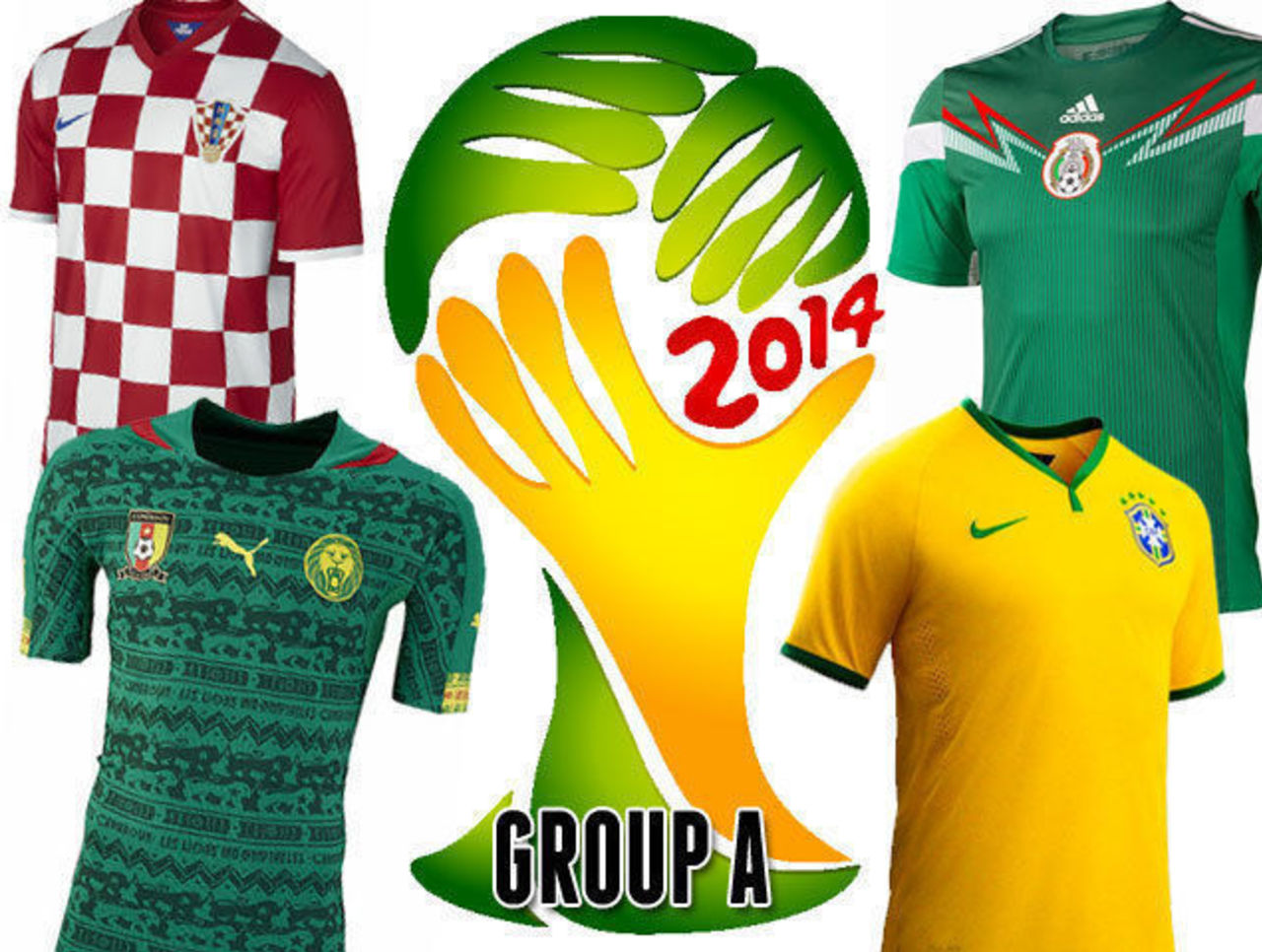
First up, the hosts...
BRAZIL
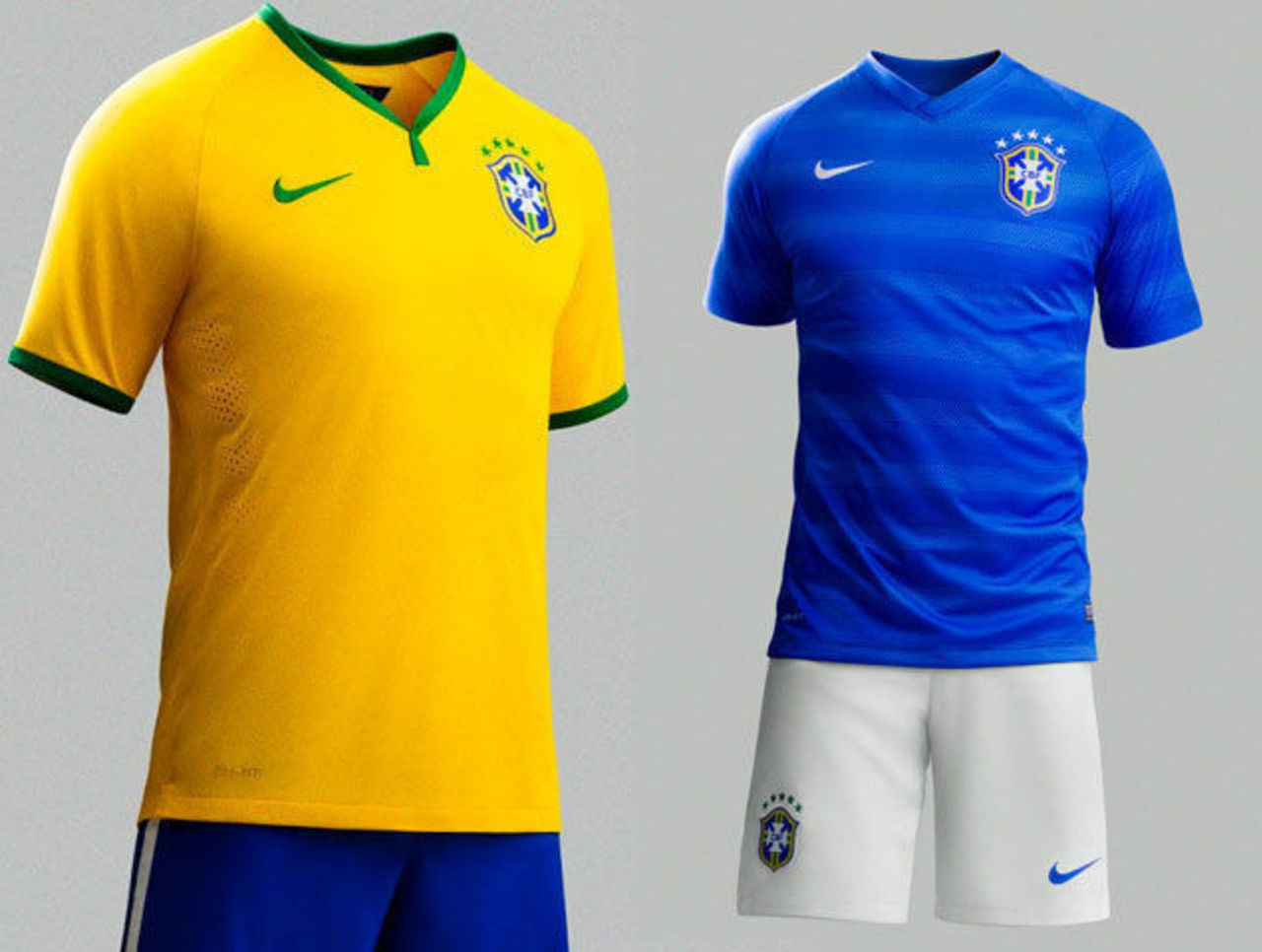
Local name: Brasil
Flag: A blue night sky showing the stars as seen from Rio de Janeiro the night Brazil became a nation on a yellow and green field. National motto of "Ordem e Progresso" ("Order and Progress") is featured on a white band across the sky.
World Cup Titles: 5 (1958, 1962, 1970, 1994, 2002)
World Cup Appearance: 20th (1930-2014)
Aside from their quadrennial dominance in the World Cup tournament, the Brazilian team is known for their classic yellow and blue home uniforms, which they'll wear again in 2014. This year's edition, designed by Nike, is quite simple, a plain yellow shirt with the National Team crest in the upper left flanked by 5 stars to represent their 5 World Cup wins. Changing from 2010 to 2014 is the addition of a small gold outline to the crest, the removal of "BRASIL" from under it, and an updated name and number font.
Because no other team is wearing yellow home kits in the 2014 tournament we'll likely not see their road blues which are paired with white shorts. The blue jersey incorporates several horizontal "hoops" which are meant to represent the ocean as well as the "energy and movement of the Brazilian people".
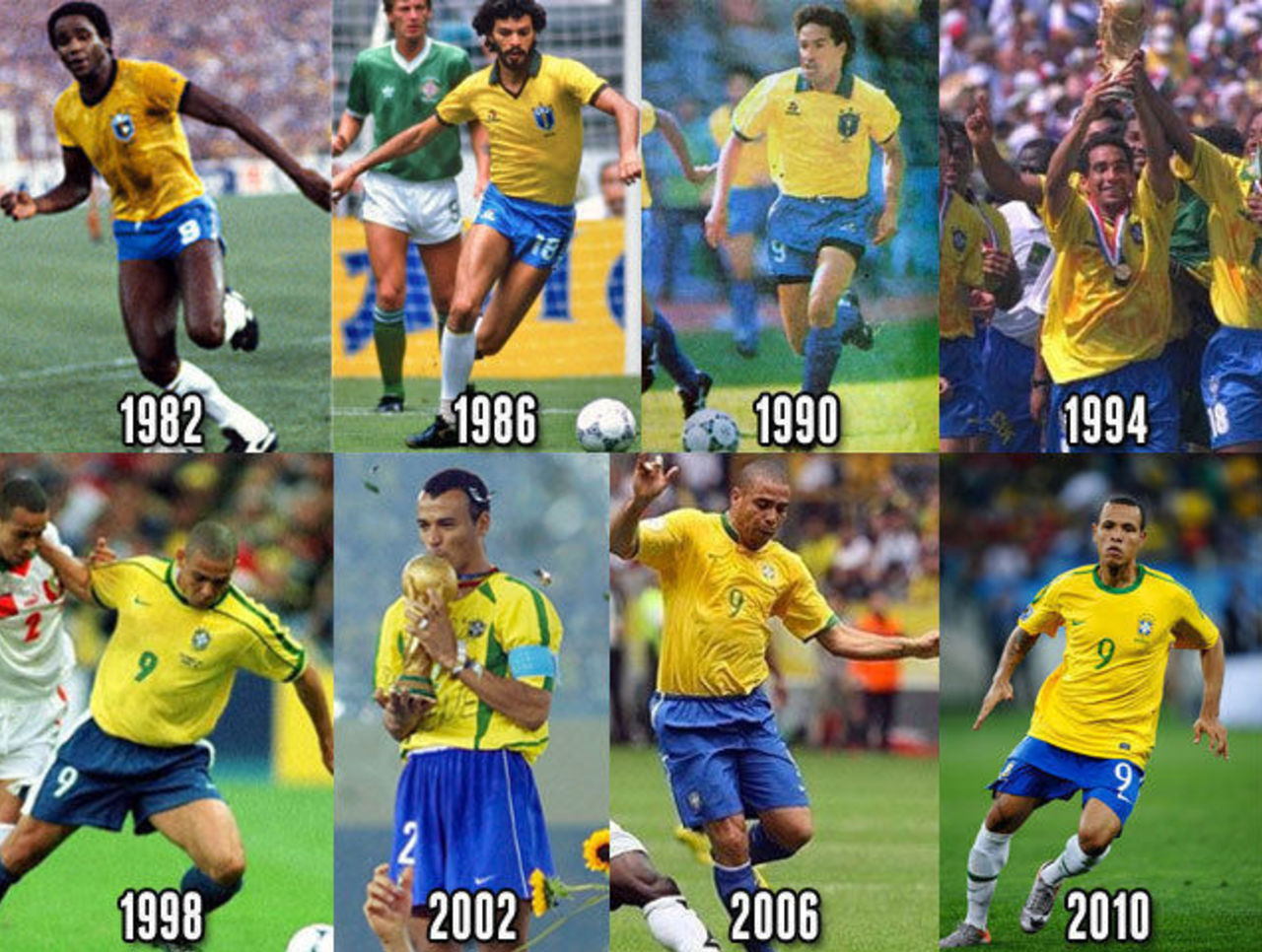
Brazil adopted the yellow jersey following a defeat at the 1950 World Cup, up until that point the team wore (hard to believe) white jerseys with blue stripes. The loss in 1950 led some to proclaim the white uniforms were cursed while others simply said they lacked the national colours. A contest was held to design the new look and a yellow, blue, and green uniform was introduced in time for the 1954 tournament. Brazil never won a tournament wearing white... they won three of the first five held after switching to yellow.
CAMEROON
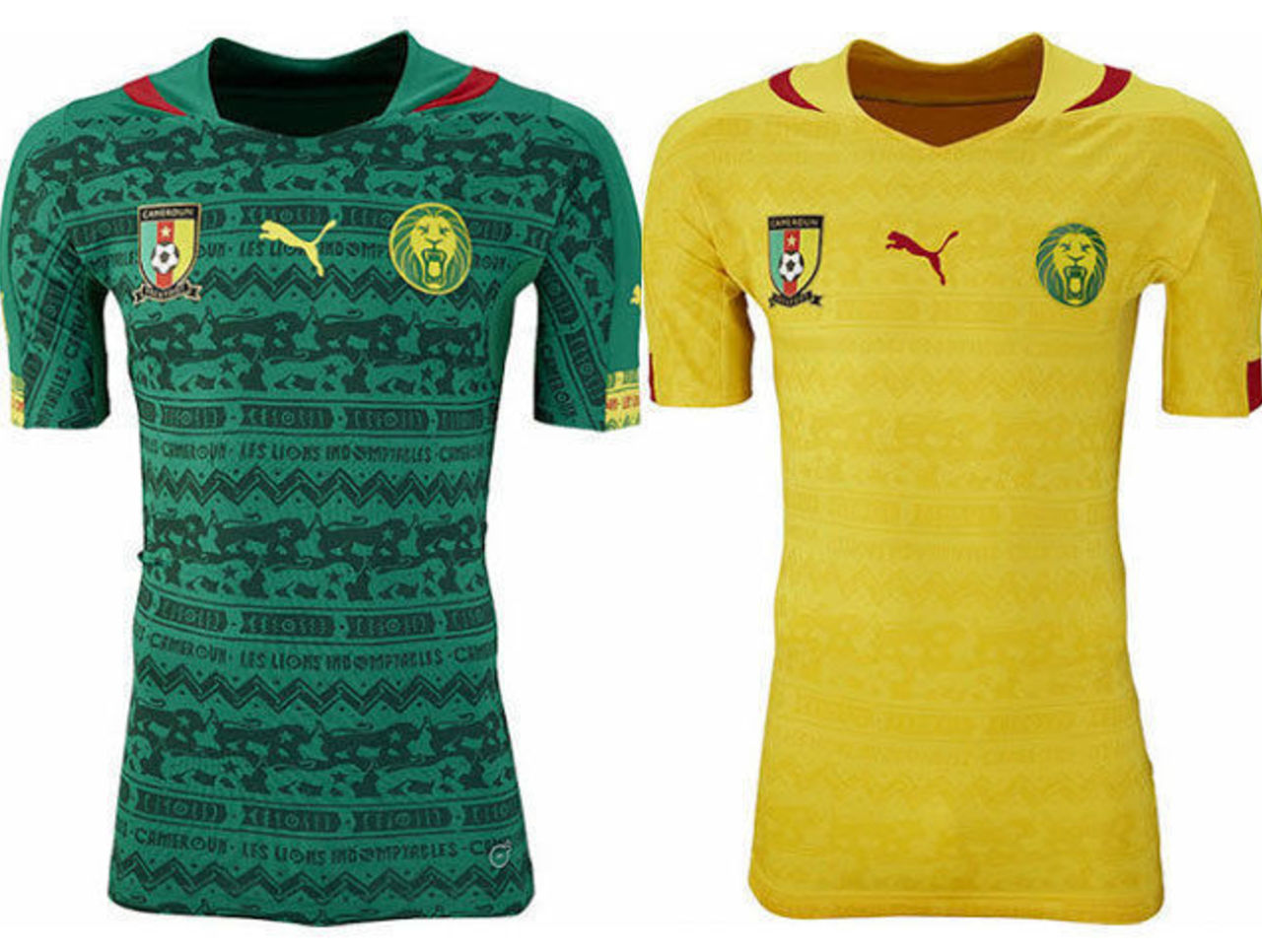
Local name: Cameroun
Flag: Three vertical stripes (based off the French flag) in green, red, and yellow. Green represents the local forests, red is unity (as is the star), and yellow is for the sun.
World Cup Titles: 0
World Cup Appearance: 7th (1982, 1990-2002, 2010-14)
The Cameroonian team will sport green and red uniforms designed by Puma in 2014, the team has always worn these colors when competing in the World Cup. The 2014 edition incorporates a sublimated design on both the home greens and road yellows, this design is based off of cave paintings found in the African nation. This cave paintings pattern continues onto yellow stripes (red on the road) at each arm cuff. The national soccer federation logo is on the upper right, a lion crest representing the team nickname ("The Indomitable Lions") is on the opposite side.
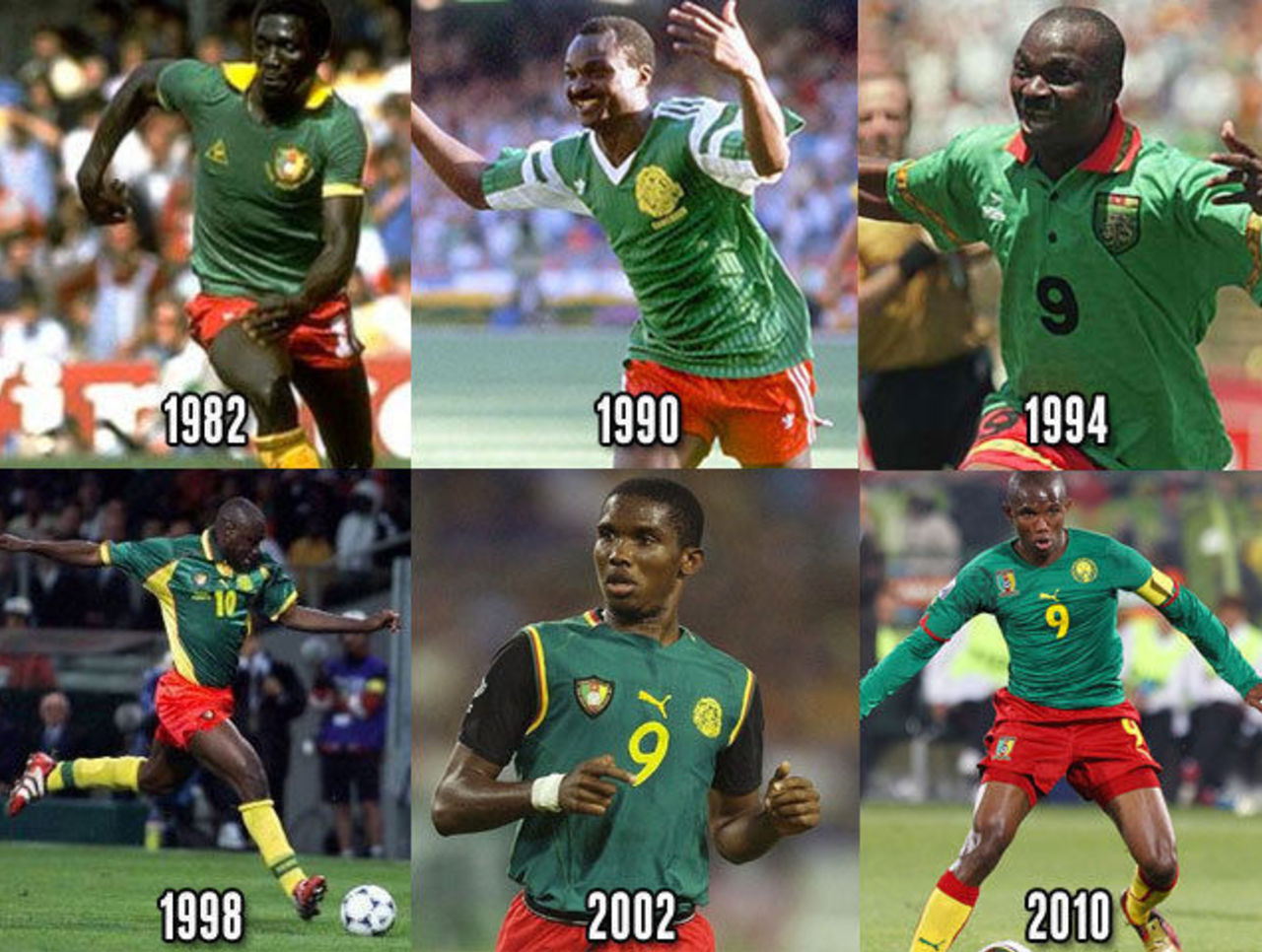
As mentioned, Cameroon has always worn green, red, and yellow - based off the colors of their national flag. In 2002 the team attempted to wear sleeveless uniforms for the World Cup tournament but were banned from doing so by FIFA because they're FIFA. Instead of creating new uniforms the players simply wore a black, sleeved t-shirt under the uniforms to complete the sleeved look.
CROATIA
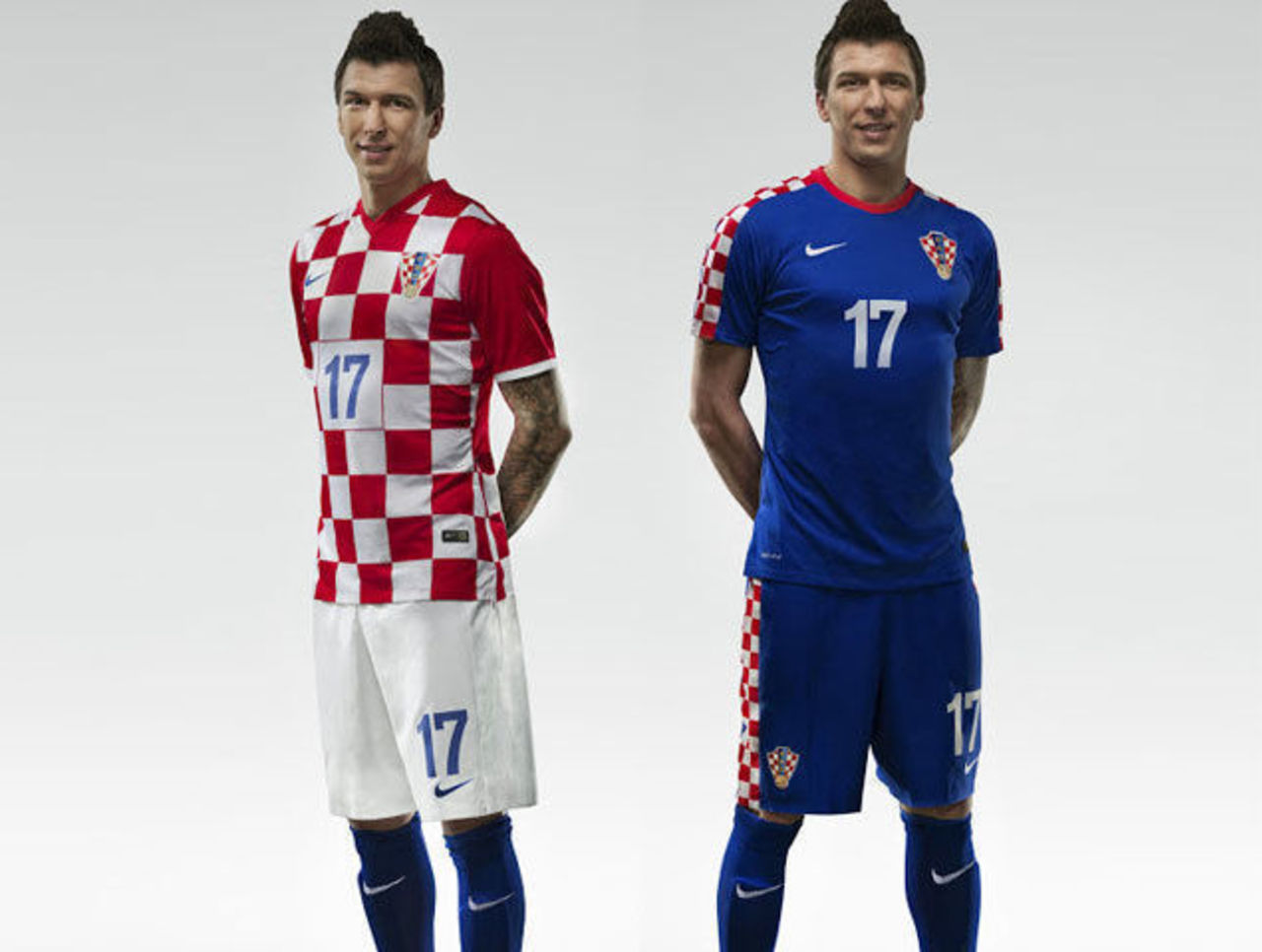
Local name: Hrvatska
Flag: Three horizontal stripes incorporating the colors of the three states which make up the current nation of Croatia, a checkerboard shield (the coat of arms of Croatia) in the middle
World Cup Titles: 0
World Cup Appearance: 4th (1998-2006, 2014)
Ask any non-Croatian about their soccer team and you'll usually get the same answer. "Those the ones in those checkerboard jerseys?". Yes, yes they are. Nike took the reigns for the 2014 design once again incorporating the well-known checkerboard pattern for the homes. The national team symbol in the upper left (updated slightly to change the colors inside the shield to blue and light blue), the Nike logo goes on the opposite side. Written inside the back collar is the phrase "Budi ponosan", which is Croatian for "Be Proud".
The road blues are fairly simple, the checkerboard pattern is used as stripes which go down each arm... So, why the checkered look on everything? It's the national symbol of Croatia, used on the coat of arms, flag, among others, it made it's debut as the personal emblem of King Maximilian I back in the 15th century.
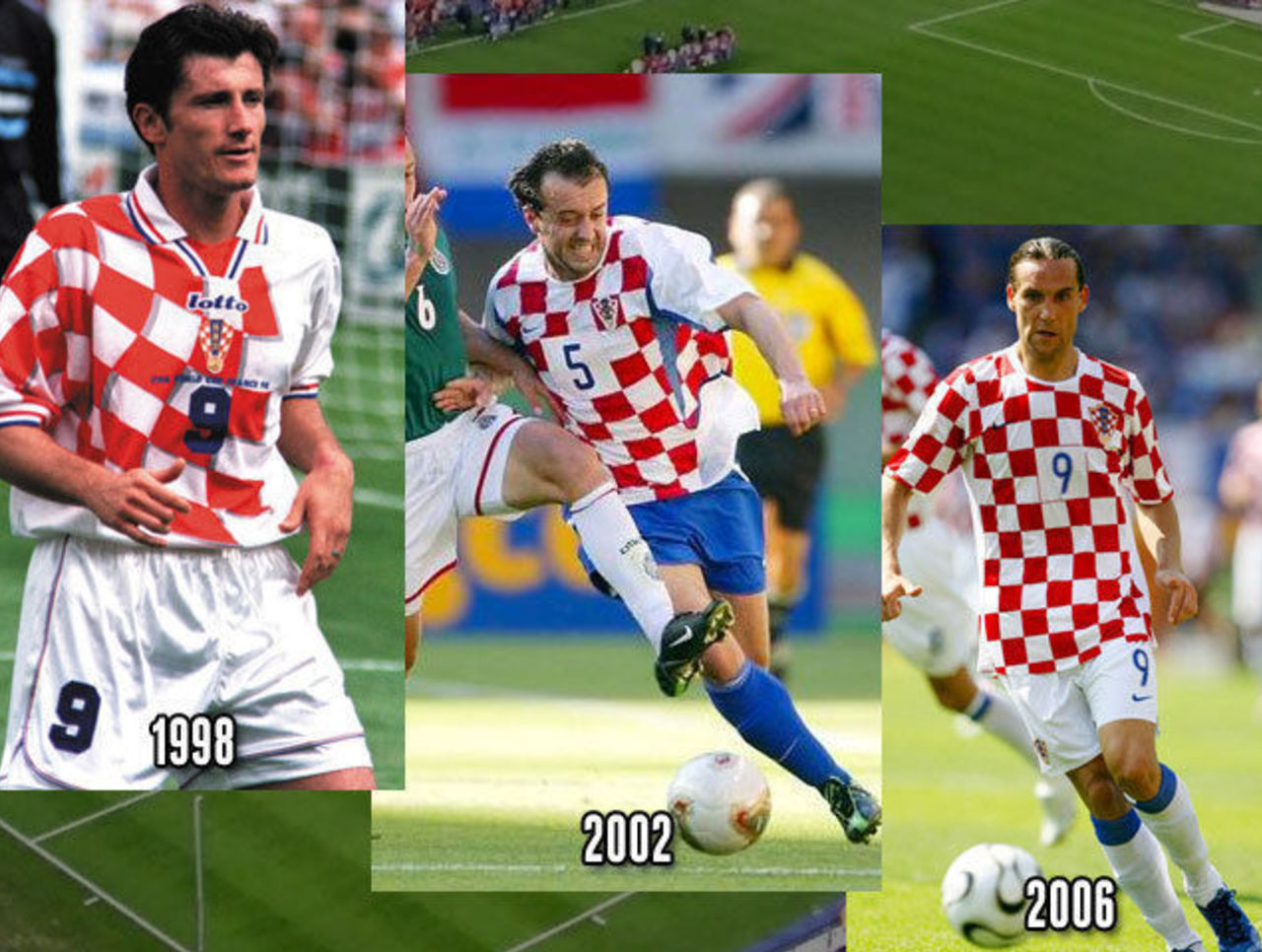
Croatia didn't become an independent nation until relatively recently (1991) and weren't even able to attempt to qualify for a World Cup tournament until 1998, which they got into and then surprisingly made it into the semi-finals. They've worn the checkered look every time, and as you can see in the photo above, it's use has increased with every subsequent tournament.
MEXICO
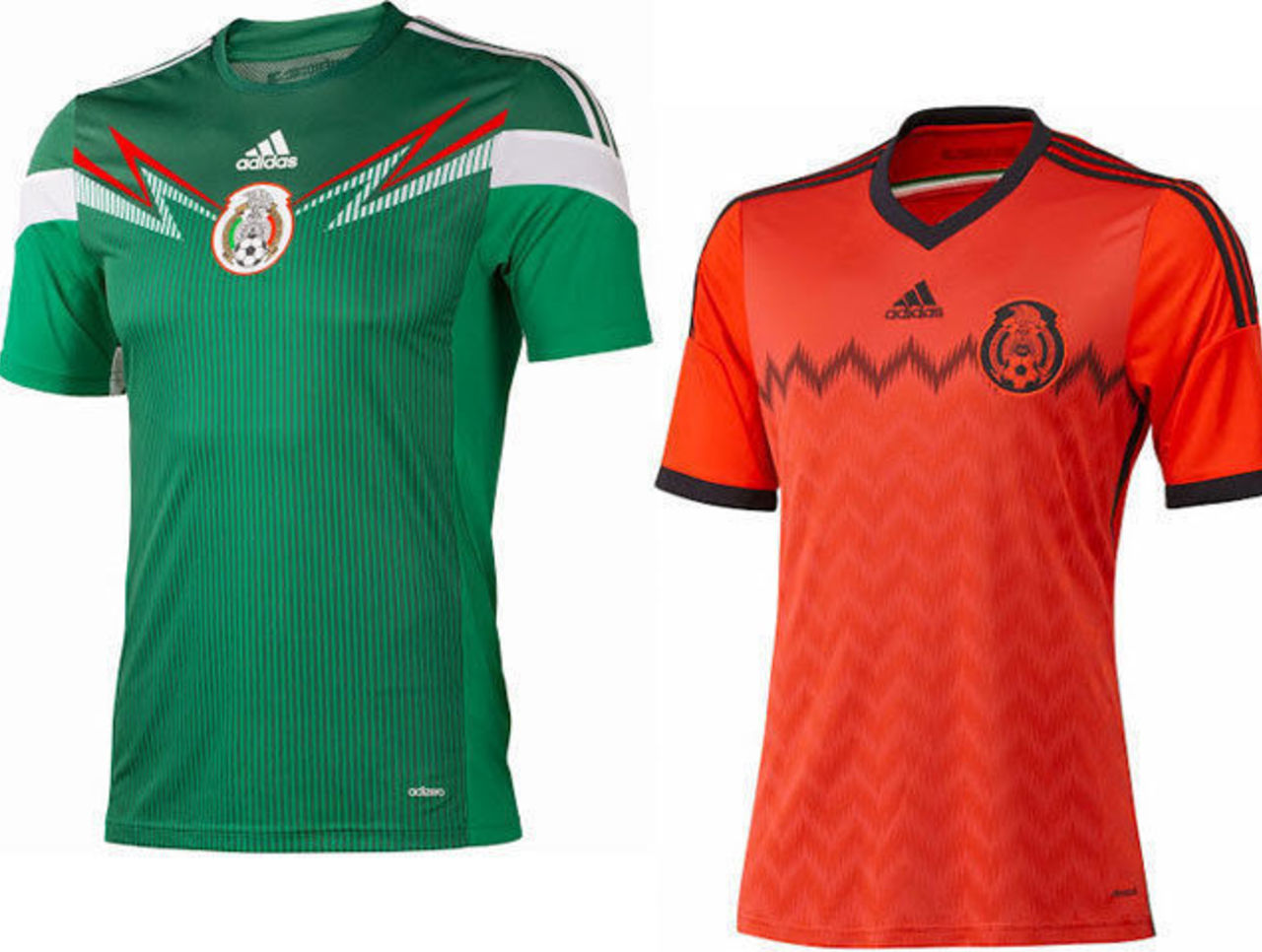
Local name: México
Flag: Three vertical stripes in red, white, and green, in the middle is the symbol of Tenochtitlan - once the center of the Aztec empire
World Cup Titles: 0
World Cup Appearance: 15th (1930, 1950-70, 1978, 1986, 1994-2014)
Naturally the team unofficially known as "La Verde" would sport green as it's primary home color in the World Cup, as they've always done, except this time it's a two-toned green, "Dos Verde" might be a more appropriate nickname this year. Also new for 2014 the green home jersey, designed by adidas, features a double red and white lightning bolt design across the front. This is meant to represent the power of the Mexican team. In between either lightning bolt is the Mexican national team emblem and the adidas logo.
For road/clash games the Mexicans will wear these striking, and very un-Mexican-like red and black uniforms. Across the front, like the homes, is the lightning bolt imagery, but done as a single bolt across the span of the chest.
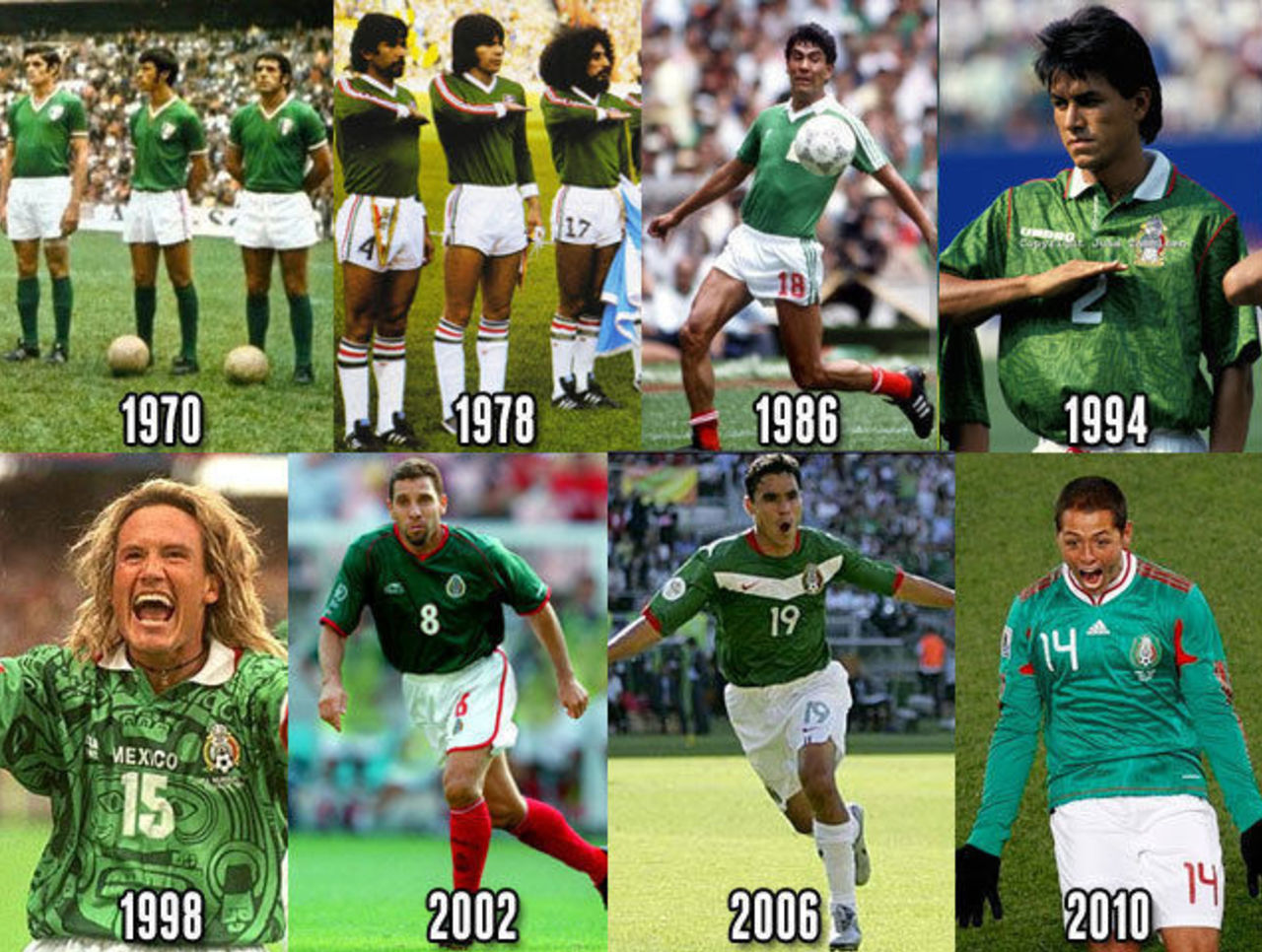
Mexico always wears green, that's just the way it is, but they haven't been afraid to add designs to the green jersey over the years. In 1994 they introduced a sublimated Aztec design to the jersey, which they increased to the extreme in 1998 before returning to a more simple look in 2002. In 2006 a white stripe was added across the front for just that tournament. You'll notice 1990 is missing up there, the Mexicans were banned as punishment for fielding an overage player in an unrelated FIFA youth tournament.
Stay tuned, we'll be going through all of the groups one-by-one in the weeks leading up to the tournament.
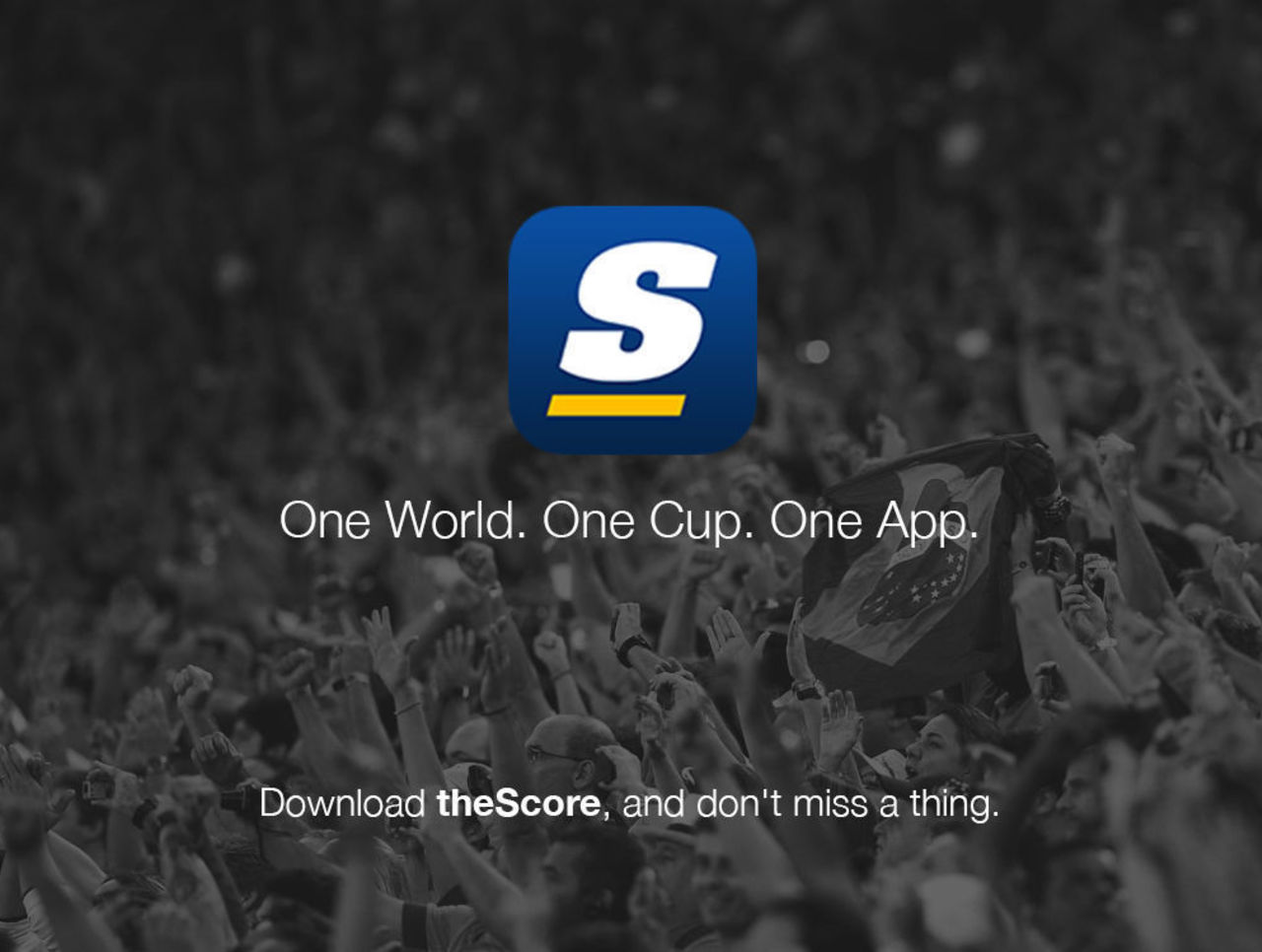
HEADLINES
- Sheinbaum says FIFA will visit Mexico to assess World Cup security
- Infantino has 'complete confidence' in troubled Mexico as World Cup host
- Davies suffers hamstring injury ahead of Canada's World Cup campaign
- Planned World Cup fan festival near Statue of Liberty canceled
- Gaza needs basics like homes, roads. FIFA's offering $50M soccer stadium